The limitations come into effect as of this Sunday throughout the country and will be in effect for four weeks
France accelerated its fight against the pandemic on Wednesday with a mild confinement starting on Sunday throughout the country and for a month that will be accompanied by the closure of non-essential shops and schools. This was announced by the president, Emmanuel Macron, in his seventh solemn intervention before the citizens since in March 2020 he affirmed “we are at war”, and that each time it has served to communicate new restrictions to try to stop the covid-19, which already it has caused 95,667 deaths.
Of these deaths, 304 occurred in hospitals on the last day, when 59,038 positives were also added, up to a total of 4.64 million, which has led the Executive to extend the restrictions again.
In addition to a general curfew from seven in the afternoon to six in the morning, in 19 departments, including the Parisian, there were until this Wednesday reinforced restrictions, such as the prohibition of travel between affected areas or the need to justify departures at a distance more than 10 kilometers from home.
These limitations, which include the closure of non-essential businesses, will be in force as of this Sunday throughout the country and for four weeks, although the veto on internal travel will begin on Monday. In total, there will be 150,000 businesses closed, with an estimated cost of 11,000 million euros per month, according to calculations by the Ministry of Economy and Finance.
“If we know how to organize ourselves, we will see the light at the end of the tunnel,” Macron told the population, in a speech in which, after acknowledging that the French have spent a year of “sacrifices”, he asked them for another “supplementary effort.” The president admitted that the circulation of the virus, with more contagious variants, is actively maintained and has accelerated in recent weeks, so that the device in operation has been insufficient.
Macron, who until now had resisted a third confinement, has finally accepted this softer version after warnings from hospital officials, who this week warned that at the current rate they would have to reject patients in intensive care due to lack of means.
France had been pleased to have been able to keep schools open since September, but this Monday began to expand controls in those establishments by reducing the number of positives needed to close a class from three to one. Now, the Government takes advantage of the two school weeks of Easter holidays, which will begin uniformly on April 12 throughout the territory, so that these centers are closed for up to four weeks in total, depending on the levels.
After a week of distance education starting on Tuesday and the following two holidays, the return to classes has been set for April 26 in the case of primary school and for May 3 in secondary school. Parents who cannot combine childcare with their work may qualify for partial unemployment (ERTE).
Macron also acknowledged that there have been delays in vaccination. Since the campaign began in late December, 8.5 million French people have received one dose and another 2.8 million have completed the cycle of two. “In the coming weeks we will further accelerate the number of doses we receive and we will progressively be the first continent in the world in terms of vaccine production,” he added, advancing that from mid-June, those under 50 years of age will be able to start getting vaccinated.
One of his main objectives is to avoid the saturation of intensive care units, where 44% of the patients currently admitted are under 65 years of age. His intervention, lasting almost 25 minutes, also gave positive perspectives to the French: from mid-May the reopening of the terraces of bars and restaurants will begin under certain conditions, and between mid-May and the beginning of summer there will be a progressive return to the activity of the cultural sector.




